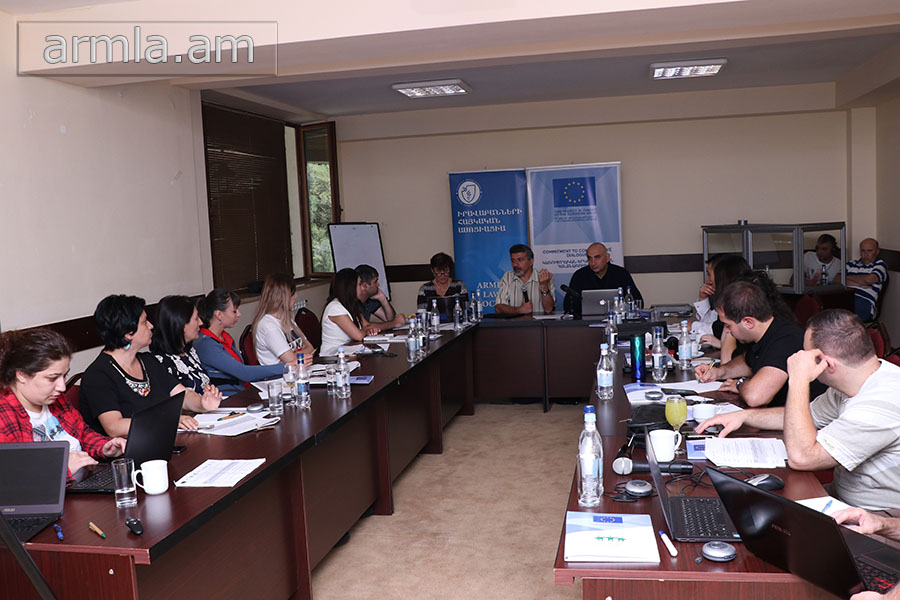
Today, the 5-day training entitled “Cooperation of non-profit non-governmental organisations and government in the Czech Republic. Development of public policies and dialogue. Lessons learned from the operation of the incubators facility” continued in Aghveran. The training is held in the in the scope of the “Commitment to Constructive Dialogue” project funded by the European Union.
Vojtěch Černý, an expert from the Czech “Agora” NGO, presented the experience of the Czech Republic in development of evidence-based policies with the example of the “Social Housing” project when they faced a problem in terms of providing housing to a number of families. Using monitoring tools, they identified the problem, designed a respective policy and provided those families with housing in a rapid manner.
Černý also presented the ROMA approach – RAPID OUTCOME MAPPING APPROACH, as well as the successful policy making engagement methodology and its influence measurement method. Afterwards, the participants did practical exercises in teams, in order to enhance their theoretical knowledge. The representatives of the CSO coalitions that received sub-grants in the scope of CCD attached great importance to this knowledge.
The “Winnet Armenia” Network of Women Resource Centers and the “Support for Probation” National Network presented their activities to the training participants, as well as the work carried out by them in the scope of the sub-grants allocated to them by the “Commitment to Constructive Dialogue” project.
The “Commitment to Constructive Dialogue” project is implemented with the financial support of the European Union by a Consortium of civil society organisations, which are the Armenian Lawyers’ Association (lead organisation), Agora Central Europe (NGO based in the Czech Republic), the Armenian Centre for Democratic Education-CIVITAS, the International Centre for Human Development, the SME Cooperation Association and the Union of Communities of Armenia.
The project aims to enhance the influence of civil society organisations (CSOs) and CSO coalitions/networks on public policies in Armenia. This will allow organisations that are already working in sectoral coalitions to access additional resources, new groups of civil society experts to come together and encourage place their causes on the local and national policy agenda, to identify common concerns and priorities and approach government bodies with constructive and strategic policy engagement initiatives.
The project will provide sub-grants to CSOs and CSO coalitions for developing public policies and bringing significant changes in the 9 target sectors selected within the project, including those of justice, human rights, public finance management, business, education, and the social sector: social inclusion of children with disabilities, agriculture, economy, and energy.






















































